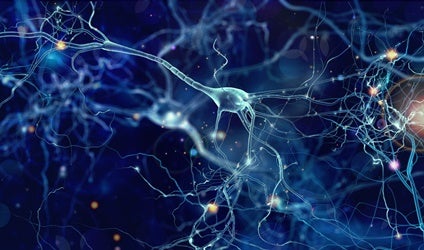The Psychological Benefits of Playing Chess


Reviewed and approved by the psychologist Gema Sánchez Cuevas
Did you know that an area of the brain is linked to the facial recognition that activates in the brain of chess experts when they play? To be more exact, it’s the area that analyzes spatial relationships. Playing chess activates these areas because the game requires an understanding of the spatial relationships between the pieces.
In fact, it doesn’t matter whether you’re an experienced or occasional player. However, experts have shown that, in expert chess players, these brain areas activate when they look at the board and see the pieces arranged in their starting positions.
Chess has many important benefits. In this article, we’ll talk about some of them.
Dendrite growth
Dendrites are branched extensions of neurons. They’re responsible for conducting neuronal signals from other neurons. By stimulating their growth, they’ll be better able to capture and send signals.
Learning to play chess and playing it regularly stimulates the growth of these dendrites. This, in turn, increases the speed of neuronal communication. In other words, it increases processing and performance levels.

Playing chess exercises both brain hemispheres
The left hemisphere of the brain is responsible, among other things, for object recognition. The right hemisphere, on the other hand, is responsible for pattern recognition during the game.
Playing chess, and following its rules and the techniques involved, forces players to use both brain hemispheres. Therefore, regular practice helps to develop both hemispheres.
It could help prevent Alzheimer’s disease
The Albert Einstein College of Medicine at Yeshiva University conducted a study with very significant results regarding the regular practice of chess. As chess puts your brain to work, it can help prevent deteriorating.
Playing chess seems to considerably reduce the risk of suffering from dementia and can also fight its symptoms. This seems to also apply to disorders such as depression and anxiety.
It can help treat schizophrenia
The Bron Cognitive Neuroscience Center in France set up daily chess-playing programs for schizophrenia patients. This practice resulted in an improvement in their condition compared to patients who were left out of the game program. In particular, processes such as attention and reasoning improved.
Improving thinking and problem-solving skills in children
It seems that playing chess at an early age can improve children’s problem-solving skills. Improvements were also seen in their reading and math scores.
After all, for a child, chess can be like a big puzzle to solve. It requires constant strategy changes that must adapt to the opponent’s moves.
Boosts self-confidence
Chess also has a great impact on self-esteem. Regardless of whether you win or lose, playing chess lends itself to analyzing games and observing where you’ve gone wrong. This, as a result, reveals a lot of information about ourselves.
Practice helps us to improve as chess players. There’ll come a time when we really start to enjoy this strategy game and feel much more comfortable and confident. This greatly increases our mental strength and self-confidence levels.
It boosts planning and foresight skills
Playing chess requires self-control and planning skills. These skills are developed in the prefrontal cortex, one of the areas of the brain that develops later in life.
Children and teens especially benefit from this strategy game because it helps them develop this part of the brain. It’s an excellent method that will help them make decisions as adults in many aspects of their lives.

Playing chess during rehabilitation
People who are recovering from a stroke or any other physically debilitating accident can benefit greatly from playing chess regularly.
It helps to improve cognitive and motor skills, as well as communication skills. It stimulates deep concentration and helps fight anxiety.
A psychological duel
In conclusion, playing chess is a psychological duel that requires endurance, a will to win, tenacity, a willingness to fight, and resilience.
You should consider playing chess regularly to reap all these benefits.
Did you know that an area of the brain is linked to the facial recognition that activates in the brain of chess experts when they play? To be more exact, it’s the area that analyzes spatial relationships. Playing chess activates these areas because the game requires an understanding of the spatial relationships between the pieces.
In fact, it doesn’t matter whether you’re an experienced or occasional player. However, experts have shown that, in expert chess players, these brain areas activate when they look at the board and see the pieces arranged in their starting positions.
Chess has many important benefits. In this article, we’ll talk about some of them.
Dendrite growth
Dendrites are branched extensions of neurons. They’re responsible for conducting neuronal signals from other neurons. By stimulating their growth, they’ll be better able to capture and send signals.
Learning to play chess and playing it regularly stimulates the growth of these dendrites. This, in turn, increases the speed of neuronal communication. In other words, it increases processing and performance levels.

Playing chess exercises both brain hemispheres
The left hemisphere of the brain is responsible, among other things, for object recognition. The right hemisphere, on the other hand, is responsible for pattern recognition during the game.
Playing chess, and following its rules and the techniques involved, forces players to use both brain hemispheres. Therefore, regular practice helps to develop both hemispheres.
It could help prevent Alzheimer’s disease
The Albert Einstein College of Medicine at Yeshiva University conducted a study with very significant results regarding the regular practice of chess. As chess puts your brain to work, it can help prevent deteriorating.
Playing chess seems to considerably reduce the risk of suffering from dementia and can also fight its symptoms. This seems to also apply to disorders such as depression and anxiety.
It can help treat schizophrenia
The Bron Cognitive Neuroscience Center in France set up daily chess-playing programs for schizophrenia patients. This practice resulted in an improvement in their condition compared to patients who were left out of the game program. In particular, processes such as attention and reasoning improved.
Improving thinking and problem-solving skills in children
It seems that playing chess at an early age can improve children’s problem-solving skills. Improvements were also seen in their reading and math scores.
After all, for a child, chess can be like a big puzzle to solve. It requires constant strategy changes that must adapt to the opponent’s moves.
Boosts self-confidence
Chess also has a great impact on self-esteem. Regardless of whether you win or lose, playing chess lends itself to analyzing games and observing where you’ve gone wrong. This, as a result, reveals a lot of information about ourselves.
Practice helps us to improve as chess players. There’ll come a time when we really start to enjoy this strategy game and feel much more comfortable and confident. This greatly increases our mental strength and self-confidence levels.
It boosts planning and foresight skills
Playing chess requires self-control and planning skills. These skills are developed in the prefrontal cortex, one of the areas of the brain that develops later in life.
Children and teens especially benefit from this strategy game because it helps them develop this part of the brain. It’s an excellent method that will help them make decisions as adults in many aspects of their lives.

Playing chess during rehabilitation
People who are recovering from a stroke or any other physically debilitating accident can benefit greatly from playing chess regularly.
It helps to improve cognitive and motor skills, as well as communication skills. It stimulates deep concentration and helps fight anxiety.
A psychological duel
In conclusion, playing chess is a psychological duel that requires endurance, a will to win, tenacity, a willingness to fight, and resilience.
You should consider playing chess regularly to reap all these benefits.
All cited sources were thoroughly reviewed by our team to ensure their quality, reliability, currency, and validity. The bibliography of this article was considered reliable and of academic or scientific accuracy.
- Sala, G., Foley, J. P., & Gobet, F. (2017). The Effects of Chess Instruction on Pupils’ Cognitive and Academic Skills: State of the Art and Theoretical Challenges. Frontiers in psychology, 8, 238. doi:10.3389/fpsyg.2017.00238
- Demily, Caroline & Cavézian, Céline & Desmurget, Michel & Mathieu, berquand-merle & Chambon, Valerian & Franck, Nicolas. (2008). The game of chess enhances cognitive abilities in schizophrenia. Schizophrenia research. 107. 112-3. 10.1016/j.schres.2008.09.024.
- Doggers, Peter (2017) Does Chess Improve Cognitive Skills? What Science Says. Chess.com blog. Recuperado de https://www.chess.com/news/view/does-chess-improve-cognitive-skills-what-science-says-8574
This text is provided for informational purposes only and does not replace consultation with a professional. If in doubt, consult your specialist.







